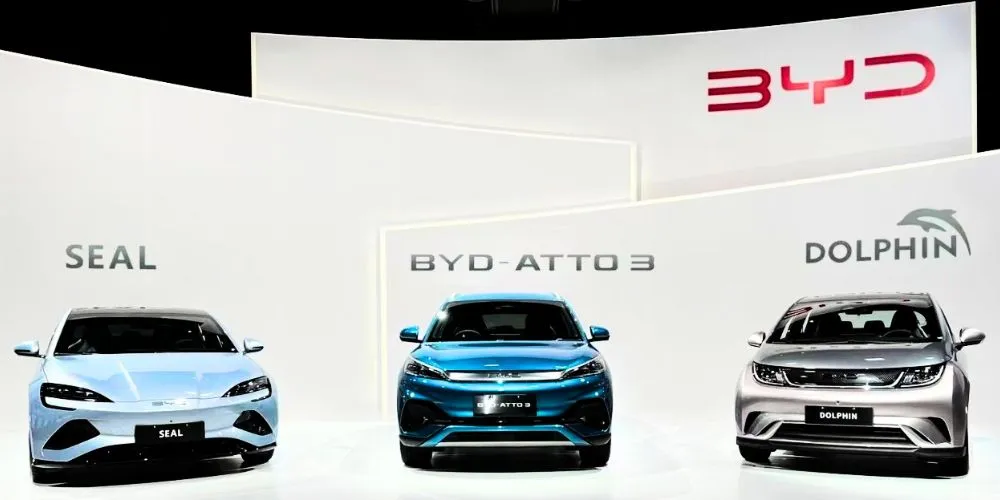Key Points:
- BYD plans to enter South Korea’s passenger EV market, posing a challenge to Korean automotive giants.
- BYD’s expansion in Korea aligns with its partnership with KG Mobility to establish a battery pack factory.
- Chinese automakers are reshaping the global automotive landscape with competitive pricing and high-quality offerings.
China’s BYD Co., the world’s leading electric vehicle (EV) manufacturer, is poised to enter South Korea’s passenger EV market, sparking concerns among Korean automotive giants like Hyundai Motor Co. and Kia Corp.
According to sources, BYD is scheduled to hold meetings with Korea’s Ministry of Environment and the Ministry of Trade, Industry, and Energy next month to secure permits for selling electric cars in Korea. Foreign automakers, including BYD, must obtain vehicle environmental and safety certifications and eligibility for state EV subsidies, typically taking two to three months.
BYD plans to introduce its compact sport utility vehicle, the BYD Atto 3, as its first model in Korea, known for its 420 km driving range on a single charge. The Atto 3, BYD’s global best-seller with over 100,000 units sold outside China last year, is priced at approximately 44 million won ($33,008) in Australia and Japan.
Additionally, BYD has registered trademarks for two other EV sedans, the midsize Seal and the hatchback Dolphine, hinting at broader plans for the Korean market. Competing with established models like Hyundai Kona Electric and Kia Niro EV, the Atto 3’s arrival is expected to intensify competition in the Korean EV market.
BYD’s expansion comes as it partners with Korea’s KG Mobility Corp. to build a battery pack factory in Korea, facilitating the production of battery packs for KG Mobility’s electric vehicles. Having surpassed Tesla as the world’s top EV maker last year, BYD’s competitive edge lies in its ability to produce 75% of EV parts in-house, driving costs down by 30% compared to competitors.
Industry observers note that Chinese automakers are shedding the perception of low-end manufacturers, offering affordable yet high-quality vehicles that challenge global players like Hyundai and Kia. Hyundai’s advisory committee acknowledges the threat Chinese automakers pose, cautioning that they are rapidly penetrating global markets, potentially reshaping the automotive landscape.
BYD’s entry into the Korean market signifies a significant shift in the EV sector’s dynamics, underscoring the growing influence of Chinese automakers on the global stage.





